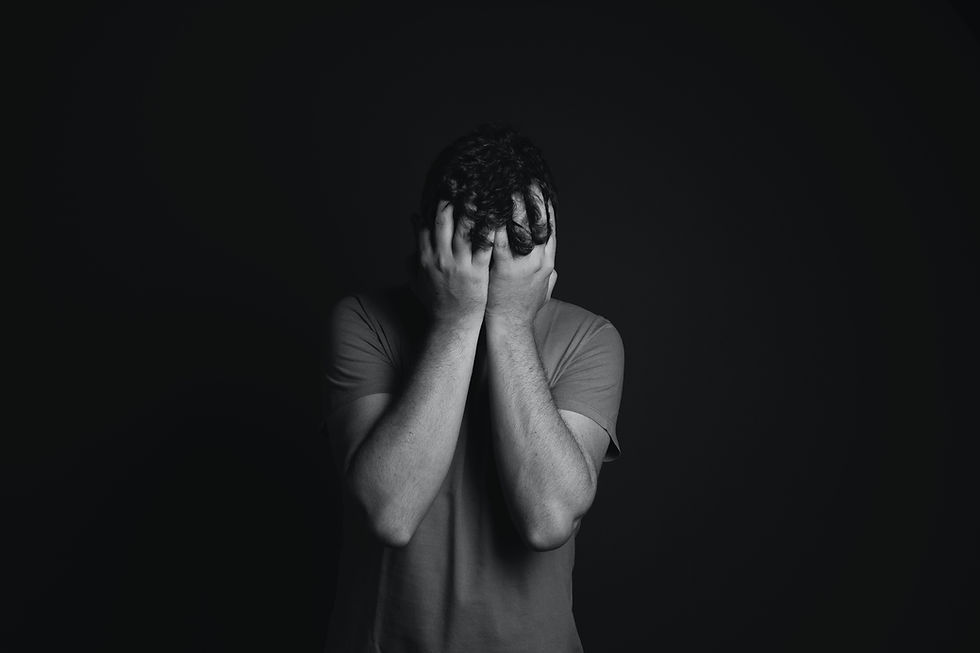Fashion and Mental Health: The Good, the Bad and the Ugly
- Mina McQuhae

- Oct 9, 2020
- 3 min read
Updated: Aug 19, 2021
Are you comfortable in your own clothes? I’m asking because the garments we wear CAN have an affect on our mental health in both positive and negative ways.
Getting dressed in the morning: it’s a task everyone does daily, some more consciously than others. Whether that be getting dressed for work, choosing a ‘cute top and jeans’ for lunch with some friends or maybe dressing up with a pair of heels for dinner date in the evening.
With each and every outfit we select (intentionally or unintentionally), we are communicating non-verbally to the outside world.
What we wear is who we are! Fashion is a way for society to express themselves. The clothes we wear daily reflect the way we want others to perceive us and how we see ourselves. Clothes can even influence our cognitive abilities.
The Good: Stimulating Creativity, Retail Therapy is REAL and Self-Esteem Boosting
If you’re on a mission to change up your wardrobe in an attempt to reinvent your style, you may try some creative combinations or even take some risks. Wearing the same style of clothing day in and day out doesn’t give you much creativity to play with.
However, by customising your fashion, you can be able to open up some creative passages in your brain that you never thought existed. Try on the clothes you’ve seen on your favourite Instagram influencer. Change up your hair to the style you’ve got pinned on Pinterest. See what it can do for you.
Retail therapy is when someone goes shopping and spends some money to feel better (let’s be serious, we’ve all done it!). It’s a real phenomenon and may be a good way to relieve some stress and any other emotions you’re feeling.
However, retail therapy can and will go too far if you don’t show a little bit of self-restraint. Occasionally shopping for a new wardrobe is totally fine, and definitely therapeutic. In order to shop without breaking the bank, thrift shopping, sales and hunting for discount codes are a perfect tactics to shop on a budget.
Looking fashionable helps with your confidence. Getting complimented on how your outfit or how you’ve applied your makeup can give you a HUGE confidence boost, thus making you feel much better about yourself.
Obviously, it goes without saying, you should feel better about more than just your sense of fashion, but that doesn’t stop the fact that getting compliments is always a positive and having high self-esteem can help you improve other aspects about your mental health.
The Bad and The Ugly: Pressures within the Industry, Tragic Deaths and Fast Fashion Effects on Consumers Mental Health
The fashion industry’s exterior of excessive glitz and glamour often distracts from the underlying issues within the industry. Far from the 24/7 flashy lifestyle, professionals across the board are subject to unique and relentless pressures.
With high emphasis on finding/being ‘the next big thing’, constant turn-overs and staying on top of trends, the industry can be very stressful environment for professionals across all sectors. Statistics show that people in the fashion industry are 25% more likely to experience mental illness, due to its fast paced, demand for the highest standards and heavily anticipated nature.
Over recent years mental health has become less taboo in the fashion industry. The tragic deaths of highly respected designers such as Kate Spade and Alexander McQueen highlight the potential consequences of mental illnesses.
Further renowned people such as John Galliano, Isabella Blow and Kate Moss have publicly opened up about their struggles with mental illness. These acts have undoubtedly brought attention to the evident problem, yet there is still an awkward silence amongst individuals in the industry.
Some individuals struggling with mental health may feel they don’t have the ‘status’ to open up about their problems; fearing loss of status and being perceived as unable to do their job. The fashion industry itself is not the sole cause of mental illness in people working in fashion, but it plays an extremely influential role.
Although for some, mental illness may have not begun in the industry, anxiety and depression is only intensified by the industry’s fast-pace, exceeding pressures and high demands.
Impulse buying is a real thing that can get difficult to control and ultimately lead to financial distress. Fast fashion has capitalised on this theory. It’s a known fact that shopping can boost levels of dopamine provided you are in a constant state of desire (linking to retail therapy). You yearn for a dress — increasing your dopamine. You buy it and once in possession, your dopamine level drops and rises again as you yearn for yet another dress from a fast fashion retailer.
This constant fluctuation of dopamine levels can lead to anxiety, depression and a feeling of worthlessness.



Comments